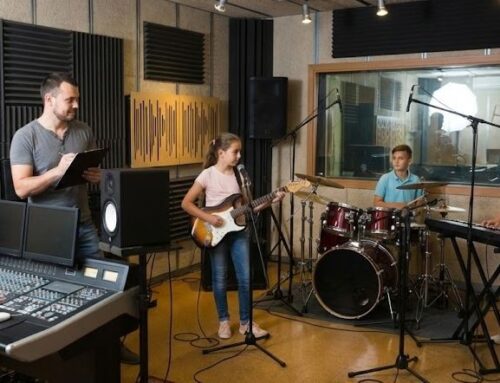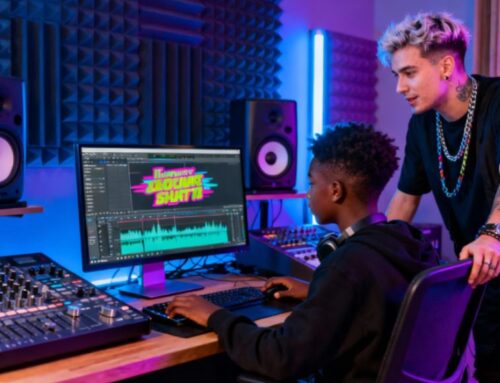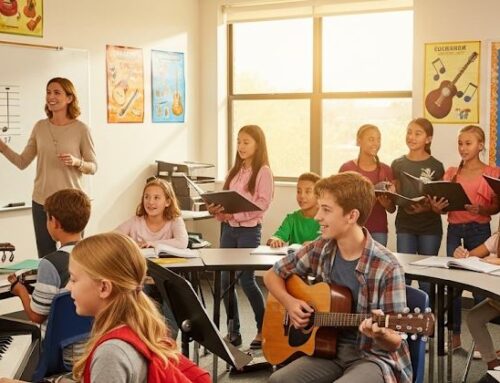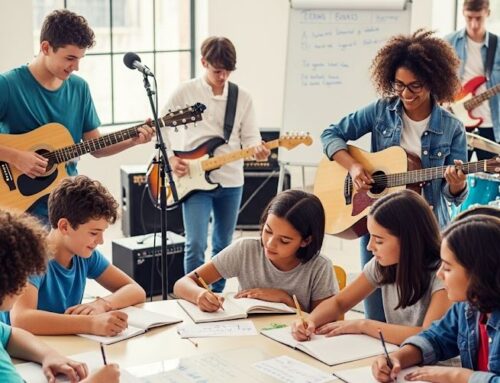Music is more than just a series of notes played in the correct order; it is an expressive and emotional art form. While technical proficiency is essential, it is equally important for children and teens to understand the significance of musical expression and interpretation. This article explores why moving beyond technique and nurturing musical expression is vital for young musicians. By encouraging them to explore their emotions, interpret the music, and convey their unique artistic voice, we can foster creativity, enhance musicality, and cultivate a lifelong passion for music.
At Capstone Music Burlington, we live by the motto “Learn it, Live it, Love it!”. What an easy way to convey that music is about learning, but that’s only part of it. Diving into the feeling of music and loving it as a part of life is what we’re teaching. If you’d like to learn more, visit us today!
The Language of Emotion in Music
Music is a universal language that speaks to the heart and soul. It has the remarkable ability to evoke emotions and connect with listeners on a profound level. For children and teens, understanding the emotional language of music is crucial. By encouraging them to explore the feelings behind the notes, they can infuse their playing with depth and sensitivity. Teaching them to recognize and interpret various emotional nuances in music can awaken their artistic sensibilities and encourage self-expression.
Developing Artistic Interpretation
Technique provides the foundation for musical expression, but it is the interpretation that brings a piece to life. Encouraging children and teens to develop their own artistic interpretation of a musical composition empowers them to go beyond the notes on the page. By exploring different dynamics, phrasing, and nuances, young musicians can imbue their performances with their own unique voice and style. This process fosters creativity and encourages them to think critically about the composer’s intentions while adding their personal touch.
Expressive Playing as a Form of Communication
Music is a powerful means of communication, and encouraging children and teens to embrace expressive playing enables them to communicate their thoughts and emotions without words. By teaching them to listen actively and respond to the music’s ebb and flow, they learn to convey their intentions through their instrument. This ability to communicate effectively through music builds confidence, nurtures empathy, and enhances their overall musicianship.
Building Musicality and Connection
Musical expression and interpretation go hand in hand with developing musicality. When young musicians explore the expressive elements of music, they develop a deeper understanding of its structure, form, and context. This understanding allows them to make meaningful musical connections and engage in more profound and fulfilling performances. By encouraging children and teens to delve into the emotional core of a piece, they can cultivate a genuine connection with the music and their audience, fostering a sense of joy and fulfillment in their musical journey.
Nurturing Individuality and Self-Expression
Every young musician possesses a unique artistic voice waiting to be discovered and nurtured. Encouraging children and teens to express themselves authentically through music helps them develop their individuality and artistic identity. By empowering them to explore different interpretations, take creative risks, and express their emotions, we foster their self-confidence and enable them to find their place in the vast world of music.
Interpretation and Expression helps us Feel the Joy of Music
While technical proficiency is essential, it is equally important for children and teens to develop their musical expression and interpretation skills. By understanding the emotional language of music, fostering artistic interpretation, and encouraging expressive playing, we enable young musicians to connect with their own emotions and communicate effectively through their instrument. Through this process, we not only enhance their musicality but also nurture their individuality and creativity. By going beyond technique and embracing the beauty of musical expression, we empower children and teens to embark on a lifelong journey of self-discovery and artistic fulfillment.






